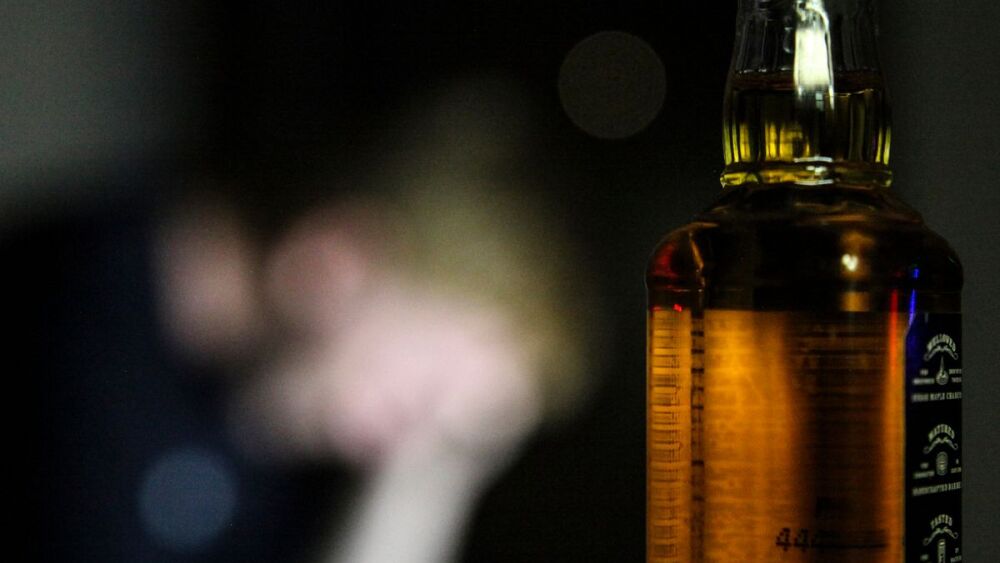Don Stacom
Hartford Courant
NEW BRITAIN, Conn. — New Britain and its fire union have reached a deal for random drug testing nearly six months after the drug-related death of an off-duty 36-year-old firefighter led to revelations of drug use in multiple city firehouses.
The union ratified the agreement Friday night, and the city will start random testing within its nearly 130-member department in August.
“Unfortunately it took some really horrible events to get us to this point, but it’s time to start moving forward,” Mayor Erin Stewart said Monday afternoon.
The fire department was rocked Jan. 26 when Firefighter Matthew Dizney, the father of two young children, was found dead at his Southington home. New Britain officials described it as an apparent overdose, and Southington police have been investigating since then.
The state medical examiner’s office recently completed toxicology tests and reported that Dizney had multiple drugs in his system at the time. Its report listed his cause of death as heart disease but noted “acute intoxication” with the presence in his system of fentanyl, the veterinary tranquilizer Xylazine and the sedative Zolpidem.
An internal investigation in the late winter and spring led the city to fire Lt. Michael Yagmin and suspend seven senior firefighters, including several lieutenants who are supervisors, for 30 days each. Stewart described them as a loose clique of fire department veterans who used drugs illegally, with some admitting to being under the influence while at work. Adderall was a drug inside the group, and there was evidence of less frequent heroin and marijuana use, Stewart said.
To keep their jobs, all seven acknowledged violating the city’s code of conduct. They were demoted to private and were put on three-year probation periods, when they cannot seek promotion. The seven also agreed to drug counseling or rehabilitation, officials said. And, as part of their “last chance” agreements, they also signed off on accepting random drug testing at any time during that probation.
The city accused Yagmin of supplying Dizney with drugs. New Britain police concluded there wasn’t enough evidence to charge him criminally, but Stewart said he lied at an administrative hearing and fired him on that basis.
“You were knowingly supplying, giving, selling, sharing and using illegal drugs and your prescription Adderall pills with a private in the fire department” and delivered drugs to Dizney while he was on duty, according to Stewart’s letter of termination to Yagmin.
Yagmin, who denied wrongdoing, is appealing to the state labor board on July 28 to get his job back.
While the investigation went on, the city stepped up long-delayed negotiations with the fire union to establish random drug testing.
On Friday, the union agreed to a policy that allows the city to randomly test up to 45 firefighters a year. It also requires training for the entire department on “reasonable suspicion” reports; firefighters will be expected to notify the city if they spot signs of drug or alcohol abuse in co-workers, subordinates or higher-ranking officers.
Resources
Navigating an addiction in public safety
What first responders need to know about asking for help, getting into treatment, and returning to work
Ken Keough, president of the fire union, called the agreement reasonable and the result of cooperative work with the city.
“All parties worked together with the ultimate goals of creating a safer work environment,” Keough said. “Firefighters and their co-workers will be safer, the community will be safer.”
Stewart said the union and city alike want the fire department functioning safely and effectively.
“This is part of changing the culture and the expectations we have of each other,” she said. “The small percentage of the department that was involved doesn’t represent the professionalism of the majority.
“What we’re seeing is the newer people in the fire department saying ‘We don’t want to tolerate this because my life is at risk if I’m working with somebody under the influence or not at their best,’” she said.
“We’re all ready to forge ahead. It’s been a really rough six months, and everybody understands things are changing,” she said.
Fire Chief Raul Ortiz, who was recruited from Hartford four years ago to command the department, noted that New Britain’s fire service never had random drug testing before.
“This is really transformational — these are much-needed changes,” Ortiz said.
The policy also strengthens protection for firefighters who become addicted to sleeping pills, tranquilizers, painkillers or similar drugs.
“If you have a need for help, this addresses that. We’re not severing ties with people who need help,” he said.
The seven suspended firefighters have all returned to duty and are productive, he said. In addition, the department recently promoted seven new lieutenants — including its first female lieutenants — in a move that shores up the supervisory ranks.
___
©2022 Hartford Courant













